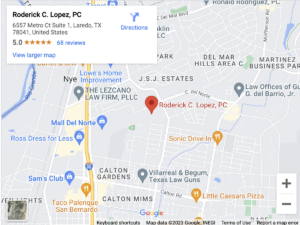
If you file a personal injury claim, you may hear the term “out-of-pocket expenses.” This term does not necessarily refer to a specific type of expense. Instead, it describes how you paid for costs associated with your personal injuries.
The compensable losses you can incur will fall into two categories. Economic damages represent the financial impact of your injuries. Non-economic damages represent the impact of your injuries on your quality of life. Out-of-pocket expenses are economic losses you pay using cash, checks, or credit cards.
Potential Economic Damages After an Injury
Your economic losses can include a wide range of expenses you incur after suffering an injury.
To recover economic damages in your personal injury claim, you must show:
- Someone else’s culpable conduct caused the expense
- The amount of the expense was reasonable
- The expense was necessary
Causation means the other person’s actions fell in the sequence of events that resulted in your injury. Reasonableness means you did not overpay. Necessity means the expense was justified based on the injury you suffered.
Thus, suppose that a dog bit your face and severed part of your nose. The reasonable cost of getting plastic surgery on your nose would meet all three requirements under those circumstances. The dog bite caused your nose injury, and repairing the disfigurement you suffered was necessary. As a result, you can recover the full costs.
Conversely, suppose that you bruised your face when your airbag deployed in a car accident. In this case, a nose job might not be a reasonable and necessary expense if your face was bruised and your nose was not broken as a result of your airbag injury.
Examples of Out-of-Pocket Expenses in a Personal Injury Claim
Out-of-pocket expenses are economic losses that you pay. You can distinguish these from unpaid debts. For example, when you get injured in an accident, a hospital may provide emergency treatment without requiring payment. The hospital will bill you for services rendered. Texas law even allows the hospital to take a medical lien against your personal injury claim.
This unpaid medical debt does not represent an out-of-pocket expense. Even though you are legally liable for the debt and can recover compensation for it, you do not need to be reimbursed for it because you never paid it.
You might incur a variety of out-of-pocket costs. Some examples of expenses you might incur include the following:
Medical Costs
You might spend money obtaining reasonable and necessary treatment for your injuries, such as:
- First aid supplies like bandages
- Over-the-counter medication
- Durable medical equipment such as crutches
- Travel expenses if you cannot access necessary treatment locally
The most common and, in most cases, costly out-of-pocket expense you incur will happen when you use your health insurance to pay for your medical treatment and therapy. Almost all health insurance policies require copayments or deductibles to access your benefits. These out-of-pocket expenses could cost you thousands or even tens of thousands of dollars.
Replacement Services
You may need help performing necessary tasks if your injuries disable you.
These tasks might include:
- Childcare
- Transportation
- Cleaning
- Cooking
For example, if you broke your hip in a slip and fall accident, you might temporarily lose your ability to drive. Until you heal, you may need to take taxis and rideshares. The fares you pay count toward your out-of-pocket expenses.
Home Modifications
You may need to modify your home to accommodate your disabilities, such as:
- Grab bars
- Ramps
- Widened doors
- Lowered counters
The necessity and reasonableness of these modifications will depend on your injuries. If you sprained your ankle, extensive home renovations might not be reasonable. But if you lost a leg due to someone else’s actions, home modifications might satisfy the reasonable and necessary test.
How To Recover Your Out-of-Pocket Expenses
When you recover your out-of-pocket expenses, you place the entire burden of your losses on the person or business responsible for them. Suppose your medical treatment costs $10,000. Your health insurer paid $8,000 after you met the $2,000 deductible.
If someone else caused your injuries, fairness dictates that they pay your full medical costs. For you to recover only $8,000 of your $10,000 medical costs would mean you paid $2,000 for someone else’s actions. By giving you a path to reimburse your out-of-pocket expenses, you ensure the at-fault party and their insurer fully compensate you.
To recover out-of-pocket expenses, you must track them. You will need copies of financial records showing the costs you incurred and their purposes.
These records could include:
- Credit and debit card statements
- Receipts
- Check images
Your personal injury lawyer will submit these records with your insurance claim to prove your expenses. If the insurer fails to offer a fair settlement in light of all your losses, your lawyer can present your records to a jury during litigation.
Talk With A Laredo Personal Injury Lawyer About Economic Damages
To learn about the compensation you can seek after your injury, you should speak to an experienced Laredo personal injury attorney. This lawyer will review your medical files and financial records to assess the value of your case. Call our office at (956) 529-7336 for a free consultation.
Roderick C. Lopez Personal Injury Lawyers
6557 Metro Court, Suite 1 Laredo, TX 78041

